Death didn’t discriminate in 2019—it took down the acclaimed, the obscure, and a little bit of everything in between.
Here, in more or less chronological order, is a highly selective list of literary lights that were extinguished in the past year.
The Giants
Someone needs to buy a granite mountain and get out the chisels and jackhammers and start carving a monument to the three literary giants who left us this year: the decorated poet laureate W.S. Merwin, on March 15 at 91; the beloved Nobel laureate Toni Morrison, on Aug. 5 at 88; and the empyrean critic Harold Bloom, on Oct. 14 at 89. This monument will put Mount Rushmore in the shade.
The Two-Bit Publisher
Elizabeth Norah Jones was born in 1919 in India, where her British father worked as an agent in the lucrative opium trade. After marrying an American named Ian Ballantine and changing her name to Betty, she sailed with her husband from London to New York in 1939 to escape the looming war and undertake a daring mission: to establish an American beachhead of Penguin books, the British publisher that had hit upon the novel idea of reprinting quality literature between paper covers at the irresistible price of 25 cents.
Betty Ballantine, who died on Feb. 12 at 99, faced daunting challenges. There were just 1,500 bookstores in America at the time, so Betty and Ian started displaying their books—by H.G. Wells, P.G. Wodehouse and other British writers—in drugstores, newsstands, train stations, and department stores. In 1952, when the Ballantines opened their own eponymous line of both original and reprinted paperbacks, Betty demonstrated that she was no genre snob. She scoured the pulps for promising science fiction stories and worked to turn their authors into novelists, among them Samuel R. Delany, Arthur C. Clarke, and Ray Bradbury. She also published fantasy, westerns, mysteries, even romance. The Ballantines democratized literature by literally bringing it to the streets. Writing in 1989, on the 50th anniversary of their arrival in New York, Betty wrote that Ian and she were “the only surviving father and mother of the paperback revolution.”
The Biographer
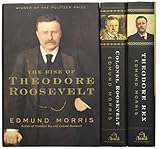 Edmund Morris has posthumously published another magisterial biography. His Edison belongs on the same shelf with his three-volume biography of Theodore Roosevelt, the first of which won the Pulitzer Prize and the National Book Award. Edison, published five months after Morris died on May 24 at 78, opens with the great inventor’s death in 1931—an event of national importance—and it then moves backward in time to his birth in Milan, Ohio, in 1847. This narrative ploy is jarring at first, but eventually it coheres, unlike Morris’s decision to inject a fictional character named Edmund Morris into his nonfiction book Dutch: A Memoir of Ronald Reagan. That book got mixed reviews, including charges that it was “dishonorable” and “bizarre” and “a loony hodgepodge.” Morris, who got a $3 million advance, was unfazed. He claimed he was not a historian and was less interested in politics and government than in “character, narrative, the strangeness of reality.” And in Ronald Reagan he might have found his ideal subject. “He was,” Morris said, “truly one of the strangest men who ever lived.”
Edmund Morris has posthumously published another magisterial biography. His Edison belongs on the same shelf with his three-volume biography of Theodore Roosevelt, the first of which won the Pulitzer Prize and the National Book Award. Edison, published five months after Morris died on May 24 at 78, opens with the great inventor’s death in 1931—an event of national importance—and it then moves backward in time to his birth in Milan, Ohio, in 1847. This narrative ploy is jarring at first, but eventually it coheres, unlike Morris’s decision to inject a fictional character named Edmund Morris into his nonfiction book Dutch: A Memoir of Ronald Reagan. That book got mixed reviews, including charges that it was “dishonorable” and “bizarre” and “a loony hodgepodge.” Morris, who got a $3 million advance, was unfazed. He claimed he was not a historian and was less interested in politics and government than in “character, narrative, the strangeness of reality.” And in Ronald Reagan he might have found his ideal subject. “He was,” Morris said, “truly one of the strangest men who ever lived.”
The Queen of Poolside Reading
 Judith Krantz understood that people will buy your books by the tens of millions, no matter how they’re written, as long as they’re packed with those most seductive and timeless of human pursuits: money, sex, and shopping. Known as the Queen of Poolside Reading, Krantz, who died on June 22 at 91, reigned atop the bestseller lists for two decades, beginning with Scruples in 1978. I was an apprentice writer at the time, and I read the novel in the hopes of understanding what it takes to send a book to the top of The New York Times bestseller list. The answer was in the opening paragraphs: money. The titular boutique is described as “the world’s most lavish specialty store, a virtual club for the floating principality of the very, very rich and the truly famous.” The floating rich? I thought the very, very rich traveled in private Leer jets. Scruples was nestled on Rodeo Drive in Beverly Hills, “the most staggering display of luxury in the whole world.”
Judith Krantz understood that people will buy your books by the tens of millions, no matter how they’re written, as long as they’re packed with those most seductive and timeless of human pursuits: money, sex, and shopping. Known as the Queen of Poolside Reading, Krantz, who died on June 22 at 91, reigned atop the bestseller lists for two decades, beginning with Scruples in 1978. I was an apprentice writer at the time, and I read the novel in the hopes of understanding what it takes to send a book to the top of The New York Times bestseller list. The answer was in the opening paragraphs: money. The titular boutique is described as “the world’s most lavish specialty store, a virtual club for the floating principality of the very, very rich and the truly famous.” The floating rich? I thought the very, very rich traveled in private Leer jets. Scruples was nestled on Rodeo Drive in Beverly Hills, “the most staggering display of luxury in the whole world.”
In a single sentence, Krantz mentions the fashion houses of Saint Laurent, Lanvin, Nina Ricci, Balmain, Givenchy, and Chanel. I had never heard of Balmain, but I remember being impressed by the brazenness of Krantz’s brand name-dropping. And then, of course, there was the sex. Here’s our heroine seducing her pilot after he has taken her aloft so she can scatter her late husband’s ashes: “Now her lips and tongue were working together around the almost erect penis, which, though fairly short, was thick, as sturdily built as the rest of him. As he grew thick and then thicker still, she shifted her mouth slightly and worked only the swelling tip, treating it with strong, unfaltering suction, while the fingers of bother her hands now slid up and down his wet, straining shaft.” After taking a cold shower, I realized I had learned an invaluable lesson. Though I had no interest in reading or writing such prose, I had genuine admiration for someone who could pull it off without a hint of apology or shame. Krantz claimed she wrote “Horatio Alger stories for women.” I don’t know if that’s true, but I do know that she sold more than 85 million books and made many millions of dollars. You can’t take it with you, but during her long productive life Judith Krantz raked in a whole lot of it by sticking to an unbeatable formula: She gave her readers exactly what they wanted.
The Immigrants’ Daughter
Paule Marshall was born and raised in Brooklyn by parents who had emigrated from Barbados. Throughout her five novels and various short story collections and novellas, Marshall used the rhythms of West Indian speech to paint pictures of resolute black women who had tasted loss but refused to become acquainted with defeat. Her breakout novel was 1959’s Brown Girl, Brownstones, about a couple from Barbados living in a Brooklyn brownstone that is riven by a conflict: As told by their daughter Selina, “a ten-year-old girl with scuffed legs and a body as straggly as the clothes she wore,” the mother dreams of buying the brownstone, while the father dreams of returning home to Barbados. The pungent, richly atmospheric novel was championed by Langston Hughes and was, in the words of the Norton Anthology of African-American Literature, “the beginning of contemporary African-American women’s writings.”
Paule (the “e” was silent) Marshall, who died on Aug. 12 at 90, said that her life as a writer began at her family’s kitchen table. She came to regard the West Indian women who gathered around that table as poets. These women spent their days scrubbing floors to earn “a few raw-mouth pennies,” and they had come to understand that language was their only weapon in America, a forbidding place they called “this man world.” As in: “In this man world, you got to take yuh mouth and make a gun!” Language was also therapy, a refuge, a homeland, an outlet for their rumbustious creative energy. To be pregnant was to be “tumbling big,” which inspired: “Guess who I butt up on in the market the other day tumbling big again!” The young girl doing her homework in the corner drank in every word, and a writer was born.
“They taught me my first lessons in the narrative art,” Marshall wrote in The New York Times in 1983. “They trained my ear.” She also noted that other early influences included Austen, Thackeray, Fielding, and Dickens—and then, belatedly, Paul Laurence Dunbar, whose poetry and fiction taught her that her own experience, including the stories told by those strong women at her family’s kitchen table, could become the stuff of literature. When Brown Girl was reissued in 1983, Darryl Pinckney wrote in an introduction: “Paule Marshall does not let the black women in her fiction lose.”
The Bartender’s Son
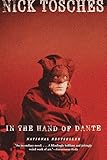

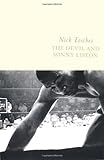 There are three things I remember about the day in 2000 when I interviewed Nick Tosches at his go-to lunch spot, the celebrity hangout Da Silvano restaurant in Greenwich Village. The first was his black fedora, the second was the cloud of cigarette that seemed to wreath his head for hours, and the third was what happened when the magazine magnate S.I. Newhouse passed our table. Tosches said, “Hi, Si, how’s it going?” To which Newhouse replied, “Not bad, Nick. You?” I was stunned—this slash-and-burn writer, this street-rat son of a Newark bartender, was on a first-name basis with power and money!
There are three things I remember about the day in 2000 when I interviewed Nick Tosches at his go-to lunch spot, the celebrity hangout Da Silvano restaurant in Greenwich Village. The first was his black fedora, the second was the cloud of cigarette that seemed to wreath his head for hours, and the third was what happened when the magazine magnate S.I. Newhouse passed our table. Tosches said, “Hi, Si, how’s it going?” To which Newhouse replied, “Not bad, Nick. You?” I was stunned—this slash-and-burn writer, this street-rat son of a Newark bartender, was on a first-name basis with power and money!
Just as memorable about that day was Tosches’s excited talk about the novel he was working on, which would become 2002’s In the Hand of Dante. Tosches, who died on Oct. 20 at 69, predicted that the novel was going to be his “big book,” the one that would overshadow his celebrated rock ’n’ roll journalism and his bestselling biographies of Dean Martin and Jerry Lee Lewis. I enjoyed the book, but I’ll let the critics judge if he was right. Eventually that day at Da Silvano, Tosches and I got around to talking about the thing I had come there to talk about: his weird little new book, The Devil and Sonny Liston, which was not quite a biography, not quite a memoir, more a riff on the journey of a man who came from nowhere, rose to the pinnacle of the boxing world, then crashed and abruptly returned to oblivion. The story of the man who dethroned Liston, Cassius Clay (later Muhammad Ali), did not interest a writer with Tosches’s deliciously skewed sensibilities. Sonny Liston’s life, on the other hand, was Tosches’s idea of the perfect parable about the killing cost of fame in America. Like everything else he produced, it was a book only Nick Tosches could have written.
The Sharecroppers’ Son

 Ernest J. Gaines, the son of Louisiana sharecroppers, will be best remembered for creating a 110-year-old black character named Jane Pittman who was born a slave on a Louisiana plantation and lived long enough to fight for civil rights in the 1960s. Gaines’s 1971 novel, The Autobiography of Miss Jane Pittman, was a critical hit, a bestseller, and fodder for a TV movie starring Cicely Tyson that won nine Emmy Awards. The novel, told in Jane Pittman’s distinctive vernacular, is an act of ventriloquism in a league with Thomas Berger’s Little Big Man, Peter Carey’s True History of the Kelly Gang, and anything Mark Twain ever wrote. Gaines, who died on Nov. 5 at 86, followed his breakthrough with A Gathering of Old Men and A Lesson Before Dying. Gaines was awarded the National Humanities Medal by President Bill Clinton and the National Medal of Arts by President Barack Obama, and in 1993 he received a MacArthur “genius” grant. Quite a journey for someone who grew up on the River Lake Plantation in Pointe Coupee Parish, La., where he attended school five months of the year because he had to spend the other seven months working.
Ernest J. Gaines, the son of Louisiana sharecroppers, will be best remembered for creating a 110-year-old black character named Jane Pittman who was born a slave on a Louisiana plantation and lived long enough to fight for civil rights in the 1960s. Gaines’s 1971 novel, The Autobiography of Miss Jane Pittman, was a critical hit, a bestseller, and fodder for a TV movie starring Cicely Tyson that won nine Emmy Awards. The novel, told in Jane Pittman’s distinctive vernacular, is an act of ventriloquism in a league with Thomas Berger’s Little Big Man, Peter Carey’s True History of the Kelly Gang, and anything Mark Twain ever wrote. Gaines, who died on Nov. 5 at 86, followed his breakthrough with A Gathering of Old Men and A Lesson Before Dying. Gaines was awarded the National Humanities Medal by President Bill Clinton and the National Medal of Arts by President Barack Obama, and in 1993 he received a MacArthur “genius” grant. Quite a journey for someone who grew up on the River Lake Plantation in Pointe Coupee Parish, La., where he attended school five months of the year because he had to spend the other seven months working.
The Pit Bull

 Stephen Dixon came to fiction writing after studying international relations and dentistry, but once he found his voice, there was no stopping him. In prose that was “knotty” and “challenging”—these are words used by his devoted fans—Dixon poured out 18 novels and some 600 stories, pounding away on a portable typewriter like a pit bull on steroids. His subjects included random spasms of violence in suburbia, a drive-by shooting on an interstate highway, a bar owner’s battle against corrupt garbage collectors—in short, the undertow of unease in modern urban life. Two of his novels, Frog and Interstate, were finalists for the National Book Award, but his writing never sold well. His paragraphs had no desire to end, sometimes running for pages, veering from marital bickering to tender depictions of friendship, love, and the writing life, and many of his stories entertain possible alternate futures. His most memorable creation may have been his compulsively randy alter-ego, the writer Gould Bookbinder, whose overheated libido inspires one of his seduction targets to tell him: “You’re not only a big schmo, but a pathetic jerk.” A complicated, fascinating, pathetic jerk.
Stephen Dixon came to fiction writing after studying international relations and dentistry, but once he found his voice, there was no stopping him. In prose that was “knotty” and “challenging”—these are words used by his devoted fans—Dixon poured out 18 novels and some 600 stories, pounding away on a portable typewriter like a pit bull on steroids. His subjects included random spasms of violence in suburbia, a drive-by shooting on an interstate highway, a bar owner’s battle against corrupt garbage collectors—in short, the undertow of unease in modern urban life. Two of his novels, Frog and Interstate, were finalists for the National Book Award, but his writing never sold well. His paragraphs had no desire to end, sometimes running for pages, veering from marital bickering to tender depictions of friendship, love, and the writing life, and many of his stories entertain possible alternate futures. His most memorable creation may have been his compulsively randy alter-ego, the writer Gould Bookbinder, whose overheated libido inspires one of his seduction targets to tell him: “You’re not only a big schmo, but a pathetic jerk.” A complicated, fascinating, pathetic jerk.
Dixon taught at Johns Hopkins University for many years, where he gave his students a copy of his guide to pitching stories to magazines, which included dozens of publications, the names of editors, rates, and insider tips on what to try to sell them. As one of his students, David Dudley, put it: “Dixon seemed to approach the whole Art of Fiction thing with a refreshing absence of pretense; writing was more like steam-fitting or hanging drywall, a craft performed by hand, every day, until you got halfway good at it and could get paid.” Stephen Dixon, who died on Nov. 6 at 83, understood that writing was work, it was a job, it was something you do every day because you have to do it and because it’s worth doing and it’s worth doing well as you possibly can.
The Polymath
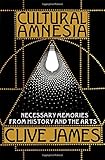 Clive James succeeded in marrying that oddest of couples: erudition and television. James, who died Nov. 24 at 80, was a polymath who wrote novels, poems, memoirs, translations, song lyrics, journalism, and criticism. He seemed to be interested in everything, from Dante to tango to Formula One racing. He was a serious writer—and wit—who became a television star in England, where he settled after leaving his native Australia. He called his television column in The Observer “the real backbone of my career as a writer,” and its popularity—along with his ubiquitous appearances on the small screen—probably lowered critical opinion of the rest of his writing. Life can be as unfair as death. As if to rehabilitate his reputation as a serious critic, James published Cultural Amnesia: Necessary Memories from History and the Arts in 2007, an alphabetical compendium of everyone he considered worth knowing in the 20th century. A giddy, wide-ranging mash-up of high and low, the book was 40 years in the making, and it’s a delight to read. Here’s how James described his approach: “The writer represents all the expressive people to whom he has ever paid attention, even if he disapproved of what they expressed.” Thus he gives us sparkling sketches of Adolf Hitler and Margaret Thatcher, as well as Albert Camus and Dick Cavett (the closest any American has come to being a Clive James), W.C. Fields and Gustave Flaubert. How did Tacitus make the cut? Don’t ask, just enjoy. Who ever decreed that food that’s good for you brain shouldn’t be fun to read?
Clive James succeeded in marrying that oddest of couples: erudition and television. James, who died Nov. 24 at 80, was a polymath who wrote novels, poems, memoirs, translations, song lyrics, journalism, and criticism. He seemed to be interested in everything, from Dante to tango to Formula One racing. He was a serious writer—and wit—who became a television star in England, where he settled after leaving his native Australia. He called his television column in The Observer “the real backbone of my career as a writer,” and its popularity—along with his ubiquitous appearances on the small screen—probably lowered critical opinion of the rest of his writing. Life can be as unfair as death. As if to rehabilitate his reputation as a serious critic, James published Cultural Amnesia: Necessary Memories from History and the Arts in 2007, an alphabetical compendium of everyone he considered worth knowing in the 20th century. A giddy, wide-ranging mash-up of high and low, the book was 40 years in the making, and it’s a delight to read. Here’s how James described his approach: “The writer represents all the expressive people to whom he has ever paid attention, even if he disapproved of what they expressed.” Thus he gives us sparkling sketches of Adolf Hitler and Margaret Thatcher, as well as Albert Camus and Dick Cavett (the closest any American has come to being a Clive James), W.C. Fields and Gustave Flaubert. How did Tacitus make the cut? Don’t ask, just enjoy. Who ever decreed that food that’s good for you brain shouldn’t be fun to read?
James has been called a comic public intellectual, but he had the mashed face of a pub brawler or, as he put it, a bank robber who forgot to take the stocking off his head. Looks can be a blessing in disguise. With James, as with all writers, the work is all that matters. And this polymath’s work was built on solid rock. As he was dying from leukemia and emphysema, he said that if a plaque were ever erected in his honor, he would like it to read: He loved the written word, and told the young.
The Sidekick
This last one is personal. Keith Botsford, a versatile man of letters who was a friend and collaborator of Saul Bellow’s, died in London the summer before last, on Aug. 19, 2018, at 90. His death went largely unnoticed until this past summer, when The New York Times obituary desk was updating a prepared obituary of Botsford and learned, belatedly, of his death. I was the writer of that advance obituary, and it ran in The Times on June 14 of this year, nearly 10 months after Botsford’s death. It was the delayed realization of a lifelong dream for me—to publish an obituary in The New York Times.
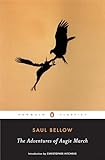 The obituary noted that Botsford met Bellow when both were teaching at Bard College in the early 1950s. At a cocktail party one night, Botsford, then a budding novelist in his mid-20s, looked across the room and saw a colleague in distress. “It was Saul Bellow, and he was pinned against the wall by a dreadful man from Winnipeg,” Botsford told me when I interviewed him by phone for the obituary. “I had just read The Adventures of Augie March, so I walked up and started talking to him.”
The obituary noted that Botsford met Bellow when both were teaching at Bard College in the early 1950s. At a cocktail party one night, Botsford, then a budding novelist in his mid-20s, looked across the room and saw a colleague in distress. “It was Saul Bellow, and he was pinned against the wall by a dreadful man from Winnipeg,” Botsford told me when I interviewed him by phone for the obituary. “I had just read The Adventures of Augie March, so I walked up and started talking to him.”
A friendship blossomed, and the two men wound up collaborating on several literary magazines, including The Noble Savage, ANON, and News From the Republic of Letters. Bellow, who died in 2005 at 89, called this last effort “a tabloid for literates,” and he described himself and Botsford as “a pair of utopian codgers who feel we have a duty to literature.”
In his long life, Botsford wore many hats—novelist, essayist, journalist, biographer, memoirist, teacher and translator. He was also a composer of chamber works, choral music, and a ballet, and was fluent in half a dozen languages. He said he helped Bellow write his acceptance speech when he was awarded the Nobel Prize in Literature in 1976. “We had an intellectual love for each other,” Botsford said of his long-time friend. “He liked to call me his sidekick. I found the title perfectly honorable.” I get the feeling that after living such a long, rich life, Keith Botsford died a happy man.
The post Those Who Left Us: Select Literary Obituaries of 2019 appeared first on The Millions.
Source : Those Who Left Us: Select Literary Obituaries of 2019








